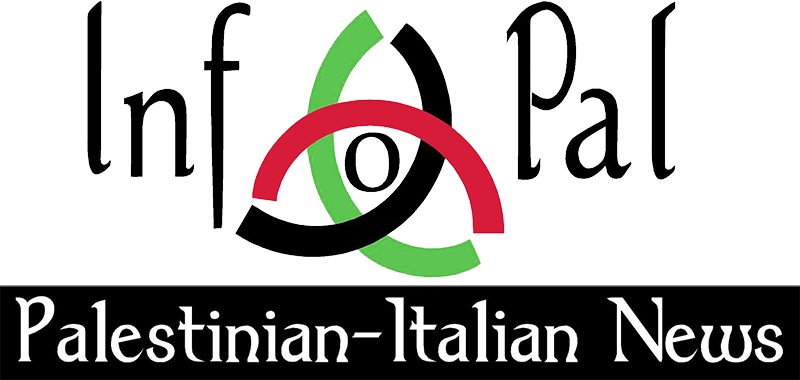A ‘soft coup’ using bread instead of tanks
Commentary by Geoffrey Aronson
The policy debate in Washington sparked by the parliamentary victory of Hamas has ended. The decision is taken: support for a soft coup against the democratically elected government of Palestine. There is logic to this policy. The Hamas victory removed the fundamental rationale underlying American support for Palestinian self-government. Institutions such as the Palestinian Authority (PA) and particularly its security agencies were creations of the Oslo era. They were central in consolidating the power of Palestinian organizations opposed to Hamas. Indeed their mandate, at least in Washington’s view, was to crush the Islamists who, unlike the Palestinian Liberation Organization, were not partners of Israel and the U.S. Certainly, Hamas views its success at the polls as a mandate to reinvent national institutions from Parliament to the PLO to reflect the movement’s new status as the democratic choice of Palestinians under Israeli occupation. The Bush administration, however, sees no reason to support those it considers terrorists in consolidating their power over institutions conceived to do the very opposite.
The problem with the policy adopted by the United States is that it will not work. Indeed, it is more likely to strengthen Islamists of all stripes and continue the political emasculation of secular Palestinian nationalists.
The historical record of both Israel and the U.S. lends credence to this pessimistic view. It will be remembered that Israel and the U.S. were similarly stunned by the victory of Palestinian nationalist forces affiliated with the PLO in municipal West Bank elections in 1976. Israel, in an effort to undue the results, eventually deported most of the winners. Others were maimed in failed assassination attempts by Israeli right-wing groups. Israel sponsored the organized thuggery of some Palestinian groups like the Village Leagues and supported others like the Islamist forerunner of Hamas in an effort to stem the rising fortunes of the secular nationalists. The one thing Israel and the U.S. never did, however, was to recognize the connection between occupation and Jewish settlement-building in the West Bank, East Jerusalem, and the Gaza Strip, and the growing power of those Palestinian groups embodying the popular hope for liberation and sovereignty.
The PLO under the leadership of Yasser Arafat’s Fatah movement, which once embodied these hopes, has now lost the initiative to Hamas. Nostalgia for an era that has passed by is not a policy, but it remains a key expectation of the Bush administration, which is betting that the Palestinians will return Fatah to power if Hamas can be made to fail. However, turning to Fatah as the default option is at odds with the conclusions so famously expressed in Cairo last year by Secretary of State Condoleezza Rice, who declared that the decades-long U.S. policy of supporting autocrats in order to achieve stability had failed.
Let’s assume that Washington still believes, despite Rice’s pronouncement, that the U.S. can benefit by allying itself to such forces. To the extent that Fatah is seen as America’s choice, particularly in an environment where U.S. policy is hostile to the choices Palestinians themselves have made, the organization’s rehabilitation in the public’s eye and much-needed internal reform are even less likely.
Money is the instrument of choice in this misguided, not to mention heartless, effort to change the complexion of Palestinian politics on the cheap. Washington has made a simple, or rather a simplistic, calculation. If the PA can be starved of cash by Western donors, either Hamas will be domesticated and thus become an acceptable interlocutor; or, more likely, Palestinians will desert an unreconstructed Hamas for secular reformers more deserving of Washington’s approval.
It should be obvious to anyone with even a passing familiarity of the region’s history that efforts to use money as an instrument either to improve the quality of life of Palestinians or to punish them, while avoiding more fundamental policy changes, will prove to be particularly crude, unimaginative, and ineffective. Washington is embracing an assumption more suited to the laboratory than to real life – that Palestinians’ choices can be reduced to the size of their breakfast.
Full bellies, however, will never solve the problem at the heart of Palestinian opposition to the status quo, and there is no reason to believe that denying Palestinians employment, medical care, sewage systems, or advice on containing avian flu will do so. In fact, such a policy would be exploited by Hamas to mobilize popular support for its refusal to surrender Palestinian rights in exchange for outside assistance. It is difficult to see Palestinians choosing, instead, to vote in accordance with American preferences. Yet this is the operative assumption guiding U.S. policy – a soft coup where bread, not tanks, is used to undermine an elected regime.
This policy turn by the U.S. is also at odds with its own conclusion that the economic rehabilitation of the Occupied Territories, where Palestinian GDP is today 30 percent less than it was on the eve of the intifada in September 2000, is vital to peace and stability.
The Bush administration, by embracing Palestinian insecurity and penury as policy objectives, is not alone in abandoning guidelines it once championed. Israel, by withdrawing from Gaza and pursuing similar policies in the West Bank, and the Palestinians, by electing Hamas, have chosen paths inconsistent with past practice. Each in its own way is looking forward, however, while the U.S. alone assumes there is an advantage in looking backward. Washington is making a fool’s bet that its interests can best be served by exacerbating the economic disaster wrought by the occupation, in the hope of restoring publicly discredited and unreformed Palestinian leaders to power.
Geoffrey Aronson is director of the Foundation for Middle East Peace in Washington. This commentary was written for THE DAILY STAR.
